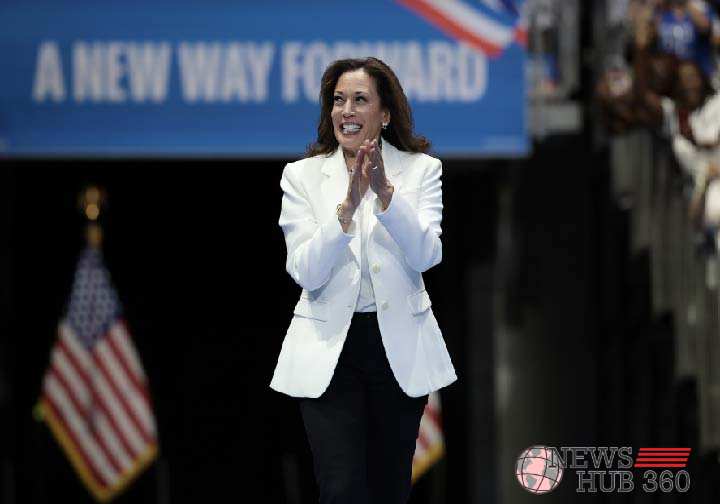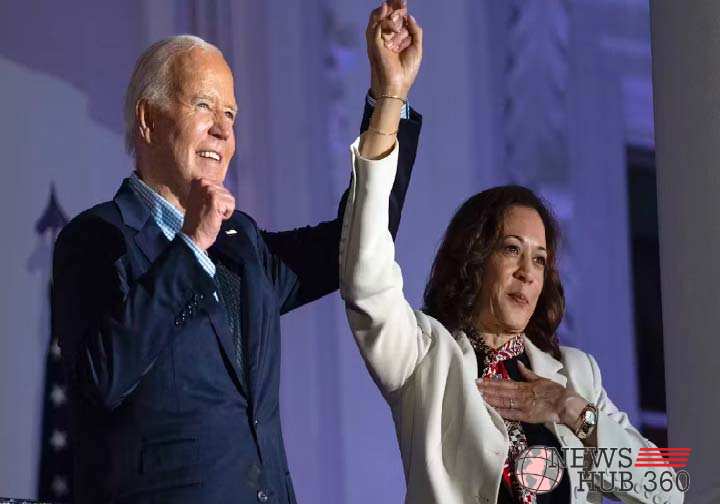Kamala Harris, the first woman of color to serve as Vice President of the United States, has sparked numerous debates about her potential to win future elections. The question on many people’s minds is: Can Kamala Harris win? The answer isn’t simple, but there are many factors to consider when evaluating her chances. This article will break down those factors and provide insights into what it would take for her to secure a victory in a presidential race.
Introduction
Kamala Harris has made history as the first female Vice President and the highest-ranking woman in the history of the U.S. government. But can she take the next step and win the presidency? With the 2024 election approaching, Harris is often discussed as a potential candidate, but her path to victory is far from guaranteed. Can Kamala Harris win? To answer this, we need to examine her strengths, weaknesses, and the broader political landscape.
Kamala Harris’ Political Background
Kamala Harris has built an impressive political resume over the years. She began her career as a District Attorney in San Francisco, then became Attorney General of California before moving on to the U.S. Senate. Each of these roles has shaped her public image and provided her with the experience needed for higher office. Her record as a prosecutor has been both an asset and a liability, depending on the audience.
Is her background enough to win? Her experience shows she is no stranger to leadership, but the challenges of a national election are far greater than those of a state or local campaign.
The Significance of Identity Politics
Kamala Harris represents a powerful symbol of progress in U.S. politics as a woman of Black and South Asian descent. This identity resonates with many voters, particularly among younger and more diverse demographics. However, it can also be a point of contention for some, particularly those who feel alienated by what they perceive as “identity politics.”
Harris’ candidacy would likely excite a base of voters looking for representation, but can she move beyond identity to connect with a broader electorate? This question remains central to her potential success.
Public Perception and Favorability Ratings
One of the biggest hurdles Harris faces is her public favorability. Polls have shown that while she has a devoted following, her approval ratings have been mixed throughout her time as Vice President. This isn’t unusual for someone in her position, but it does raise concerns about how she would perform in a general election.
Why do favorability ratings matter? They are often an indicator of electability. Candidates with higher approval ratings tend to perform better in elections, though this is not a guarantee of success. Harris will need to focus on improving her public image and addressing the concerns that have driven down her ratings.
Strengths in the Democratic Party
Kamala Harris enjoys strong support within the Democratic Party, particularly among its more progressive and diverse wings. As someone who has consistently advocated for criminal justice reform, climate action, and other key Democratic priorities, she has a loyal base within the party.
Will party support be enough? Intra-party backing is critical, but a successful campaign requires reaching beyond the core base to attract moderates and undecided voters. Harris will need to bridge the gap between the party’s progressive and centrist factions.
Challenges Ahead: Criticisms and Controversies
Every candidate faces criticism, and Harris is no exception. Her record as a prosecutor has been a focal point for many critics, especially those who argue that she was too tough on crime in ways that disproportionately affected communities of color. On the other hand, some conservatives have labeled her as being too progressive.
How will these controversies affect her chances? While every politician faces challenges, the way they are addressed can make or break a campaign. Harris will need to find a way to confront these criticisms head-on while staying true to her values.
The Role of Media in Shaping Harris’ Image
The media plays an essential role in defining a candidate’s public persona. Harris has been both praised and criticized in various outlets, often in ways that reflect the political leanings of those publications.
Can she manage her media image effectively? This is a critical question. How she is portrayed in the media will have a significant impact on public opinion, and Harris will need a strong communications team to ensure that her narrative is well-controlled.
Can Harris Appeal to Independent Voters?
In any national election, independent voters play a pivotal role. Harris will need to convince this group that she is the right choice for the country. Historically, winning over independents has been a challenge for candidates seen as highly partisan.
What will it take for Harris to win over independents? She will need to craft a message that speaks to a wide range of concerns, including the economy, healthcare, and national security, while also distancing herself from extreme partisan rhetoric.
The Importance of a Strong Campaign Team
A candidate’s success depends heavily on the strength of their campaign team. Harris will need a group of experienced strategists, fundraisers, and communications experts to help her navigate the complex landscape of a presidential election.
Does she have the right team in place? It’s too early to tell, but building a competent and cohesive team will be essential to her success.
Policy Positions: Key to Winning or Losing?
Harris’ policy positions will be central to her campaign. She has consistently advocated for progressive reforms, including Medicare for All, climate change action, and criminal justice reform. However, these positions may not resonate with every voter.
Will her policies attract or repel voters? This will depend on how well she can balance progressive ideals with pragmatic solutions that appeal to a broader audience.
Does Harris Have the Experience to Lead?
One of the arguments in favor of Harris is her extensive experience in government. From her time as a prosecutor to her tenure as Vice President, she has been at the forefront of major policy debates. However, some critics argue that she lacks the leadership qualities needed to be president.
Is experience enough to secure a win? While experience is important, voters often look for more than just a resume. They want someone who inspires confidence and has a clear vision for the future.
Conclusion: Can Kamala Harris Win?
So, can Kamala Harris win? The answer depends on several factors. She has the political experience, the support of her party, and a compelling personal story. However, she also faces significant challenges, including mixed public perception, controversies from her past, and the need to appeal to a broad electorate. Ultimately, Harris’ success will hinge on her ability to build a coalition that includes Democrats, independents, and even some moderate Republicans.
FAQs
1. What are Kamala Harris’ chances of winning a presidential election?
Kamala Harris has a strong political background, but her chances depend on public perception, her campaign strategy, and the overall political climate.
2. How does Harris’ identity affect her candidacy?
As a woman of Black and South Asian descent, Harris represents a milestone in U.S. politics, which may both help and hinder her depending on voter demographics.
3. What are some of the criticisms against Kamala Harris?
Harris has faced criticism for her record as a prosecutor, as well as accusations of being too progressive or not progressive enough, depending on the critic.
4. Can Harris win over independent voters?
Winning over independent voters will be crucial for Harris, and she will need to focus on issues that resonate with them, like the economy and healthcare.
5. Does Kamala Harris have the experience to be president?
Harris has a wealth of experience in government, but some question whether she has the leadership qualities needed to succeed as president.



